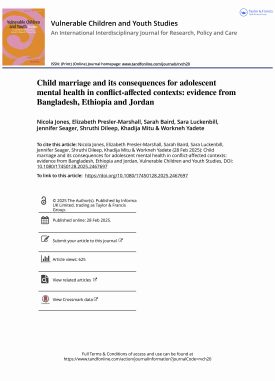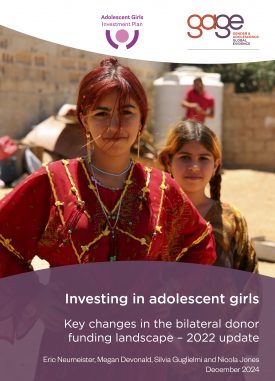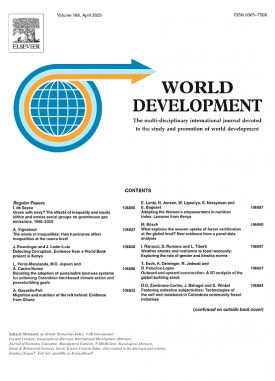Over the past decade there has been a burgeoning literature on social norms and the need to understand their context-specific patterning and trends to promote change, including to address the harmful practice of female genital mutilation (FGM), which affects around 200 million girls and women globally. This article draws on mixed-methods data collected in 2022 and 2023 with 1,020 adolescents and their caregivers, as well as key informants, from Ethiopia’s Somali region to explore the patterning, drivers, and decision-making around FGM. Findings indicate that almost all Somali girls can expect to undergo FGM before age 15, and that infibulation is near universal. Critically, however, we find that respondents’ understanding of infibulation is rooted in traditional practice, and many girls are now “partially” infibulated—an invasive procedure that girls nonetheless see as an improvement over the past.
Suggested citation:
Presler-Marshall, E., Jones, N., Endale, K., Woldehanna, T., Yadete, W. and Abdiselam, A. (2024) ‘”People will talk about her if she is not circumcised”: Exploring the patterning, drivers and gender norms around female genital mutilation in Ethiopia’s Somali region’. Social Science & Medicine: 116664 (https://doi.org/10.1016/j.socscimed.2024.116664)


